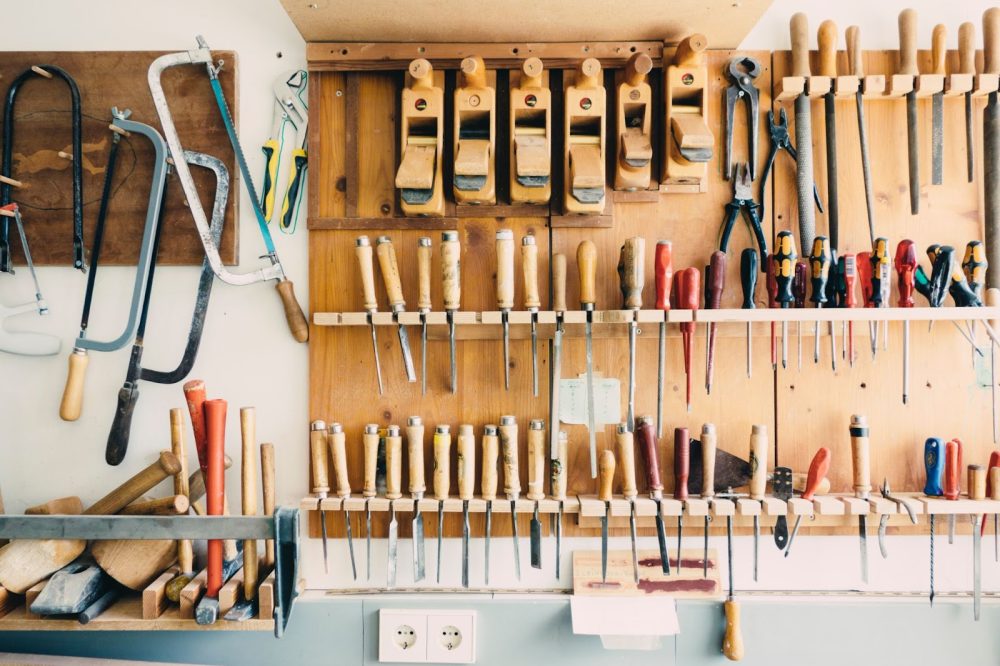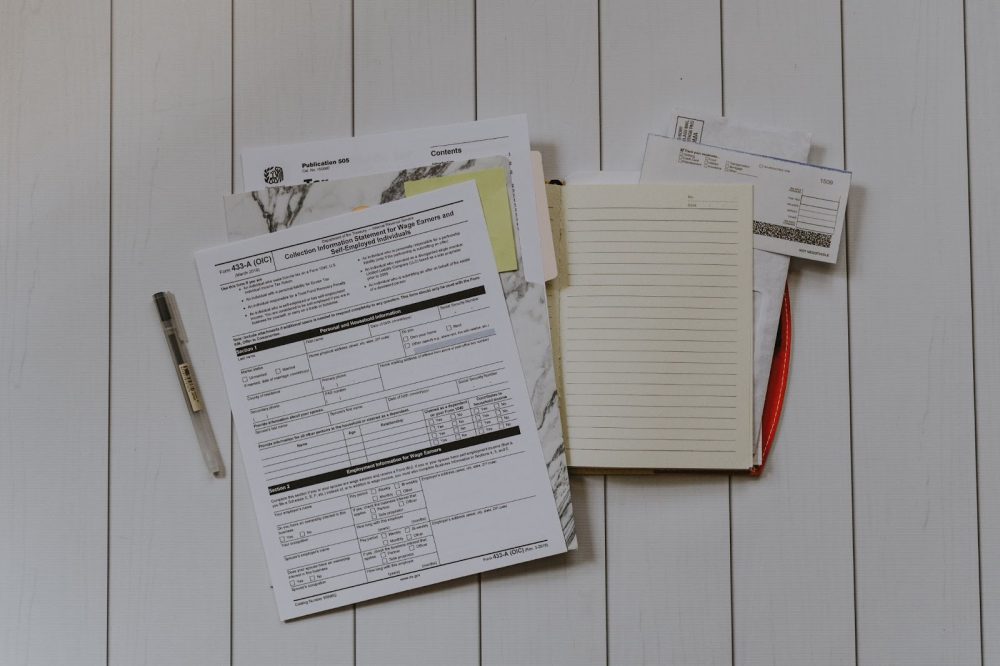
How to Become a Freelance Carpenter

If you have a knack and passion for carpentry, a freelance career can be challenging, rewarding, and very lucrative. Many carpenters choose the freelancing path because it offers autonomy and independence.
In order to establish yourself as a freelance carpenter, there are a few key points to keep in mind.
This comprehensive guide will discuss what you need to get started as a self-employed carpenter.
Learn how to start a freelance business in your field:
Freelance Mechanic | Freelance Electrician | Freelance Engineer | Freelance Accountant | Freelance Barber | Freelance Hair Stylist | Freelance Software Developer | Freelance Content Strategist | Freelance Physical Therapist | Freelance Bartender | Freelance Chef | Freelance Medical Assistant | Freelance CycleBar Instructor | Freelance CrossFit Coach | Freelance Content Writer | Freelance Piano Tutor | Freelance Waxing | Freelance Audio Editor | Freelance Data Analyst | Freelance Photographer | Freelance Tutor | Freelance Videographer | Freelance Welder | Freelance Teacher | Freelance Video Editor | Freelance Real Estate Agent | Freelance UX Designer | Freelance Copy Editor | Freelance Administrative Assistant | Freelance Social Media Manager | Freelance DJ | Freelance Illustrator | Freelance Copywriter | Freelance Personal Trainer | Freelance Grant Writer
What Is a Freelance Carpenter?
A freelance carpenter works part-time or full-time as an independent contractor. They find their clients and purchase their own equipment and materials. While freelance carpenters do take on contract work for companies, they are ultimately self-employed.
Freelance carpenters are responsible for all sorts of things traditional employees are not. These include:
- Setting your own work hours
- Keeping track of time spent on separate projects
- Billing clients
- Paying your own employment and business taxes.
Types of Carpentry
Carpenters undertake a range of jobs, including building furniture, installing doors and windows, renovating or refitting existing structures, and much more.
Although you should be able to perform the most basic carpentry tasks, it’s essential to specialize in one or two types of carpentry. This way, you can hone your skills and become known for a specific kind of work.
Niche skills create demand, and you can attract higher-paying customers by providing unique skills.
For example, if your toilet is leaking, would you rather hire a general plumber or a plumber who specializes in fixing toilets?
Just because it’s an important decision doesn’t mean it’s difficult.
So, let’s discuss the different types of freelance carpentry.
Rough Carpentry
Rough carpenters concentrate on planning, building, and maintaining building structures.
Rather than building home-use additions like shelving units, rough carpenters construct roofing, framing, drywall, and wooden structures involved in house repair or initial building.
Joists
Joist carpenters build and construct floor joists, where they fix floor surfaces.
Trim Carpentry
Trim carpenters specialize in constructing moldings and trims of a room.
Cabinet Carpentry
Cabinet carpenters build cabinetry for laundry rooms, kitchens, bathrooms, and other rooms.
Framer
Framers focus on building framing for housing or other types of buildings. The primary difference between a rough carpenter and a framer is that a framer only specializes in the framework.
Roofer
Roofers concentrate on planning, building, and maintaining the trusses, rafters, and beams involved in a building’s roof construction.
Benefits of Becoming a Freelance Carpenter
Although finding clients at the start may be difficult, becoming a freelance carpenter has its benefits. You get to set your own hours, choose which projects you work on, and have complete autonomy over your work life.
Furthermore, self-employed carpenters have minimal education requirements. Carpenters usually have a high school diploma or GED. This is because carpentry is a career path that focuses on skill rather than education.
There’s a reason why out of the 942,900 carpenters in the United States, 26% are self-employed workers.
Additionally, experts anticipate that the carpentry field will grow at a rate of 2%, which is slower than average. Therefore, you can begin to establish yourself as a freelance carpenter without a lot of increased competition in the future.
With a median annual wage of $48,260 and the highest 10% earning more than $80,940, freelance carpentry can enable you to live a sustainable life.
What Do You Need Before You Start Freelancing?

Now that you understand what freelance carpentry entails, it’s time to discuss what you need before you start freelancing.
You’ll need specific skills and qualifications to prove yourself to potential clients. You’ll also need to gather the correct equipment for your chosen carpentry specialty.
Skills and Qualifications
If you don’t have much experience on-the-job as a carpenter, becoming an apprentice is a great option. An apprenticeship involves working under an experienced carpenter and learning the skills of the trade in a one-on-one environment.
Apprenticeship programs typically last three or four years. Trade associations and unions usually sponsor apprenticeships. The beginning of your apprenticeship will give you basic knowledge of specific carpentry topics.
These topics include safety, blueprint reading, freehand sketching, first aid, and various carpentry techniques. After you hone your basic skills, you will learn about rough framing, form building, exterior finishing, and layout and interior.
After completing your apprenticeship program, you’ll receive certification as a journeyman. Then, you can advance your carpentry skills by obtaining certificates or enrolling in trade school.
Other critical carpentry skills include:
- Physical strength
- Math
- Attention to detail
- Problem-solving
- Mechanical skills
It’s also vital to have great people skills and networking capabilities. Since you need to find clients yourself, you’ll need to understand how to grow and maintain relationships.
Required Equipment
As a self-employed carpenter, you’ll need to purchase your own equipment. It’s best to invest in high-quality tools, so you don’t have to repurchase them in the future.
So you know that you need to buy quality tools, but what specific equipment will you need?
These are the tools every carpenter or woodworking professional should have:
- Claw hammer
- Nail sets
- Variety of chisels
- Hand saws and feather board
- Levels and moisture meters
- Layout square
- Sliding bevels and calipers
- Hand plane
- Sawhorse and workbench
- Clamps and jigs
You will need additional equipment based on what carpentry specialty you choose. The best way to learn which additional hand and power tools you need is by speaking with your apprenticeship master or other freelance carpenters with the same specialty.
How to Set Up Your Freelance Carpentry Business
Now that you’re ready to set up your freelance carpentry business let’s discuss what you’ll need to begin.
Apply for a Business License
After completing your apprenticeship and receiving your certification, you will still need further licenses to practice your craft legally. To start your freelance carpentry business, you’ll need to register your business and obtain a business license for tax purposes. You may also need to obtain a carpentry license.
You can also choose to register as a self-employed business owner. First, freelance carpenters need to decide on a business structure. The two primary options are sole proprietorships and LLCs.
Sole Proprietorship vs. LLC?
Sole proprietorships are freelancers’ most popular business structure because it requires minimal paperwork. If your goal is to make freelancing as straightforward as possible, stick with a sole proprietorship.
More specifically, a sole proprietorship is an unincorporated business owned by the person running it. As a sole proprietor, there won’t be any separation between your personal and business assets and expenses. You are personally responsible for all your business obligations and debts.
An LLC is a business entity you can incorporate by filing paperwork with your state. Although an LLC requires upfront paperwork and costs, it provides your business with long-term benefits. For example, an LLC offers legal protection and potential tax advantages that sole proprietorships don’t.
Once you have an LLC, a business creditor can’t legally go after your personal assets if you’re unable to pay your debts or if your business is sued. However, creditors can come after your personal assets if you’re a sole proprietor.
By default, single-member LLCs are taxed precisely the same way as sole proprietorships. However, LLCs can also choose to be taxed as an S Corporation or C Corporation, depending on the most cost-effective tax structure for your circumstances.
Usually, freelance carpenters start as sole proprietors. Once they establish themselves and grow their business, they incorporate an LLC to protect their personal assets.
See the advantages of paying quarterly taxes as a single-member LLC.
Obtain Business Insurance
Since carpenters work with heavy machinery and dangerous hand tools, it’s essential to acquire comprehensive business insurance. This license will protect you and your company against accidents on the job site.
We recommend finding a business owners policy (BOP) that includes coverage such as commercial auto insurance, workers compensation insurance, and general liability insurance.
You should also seek carpenters insurance that protects against property and equipment damage.
How Does Taxation Work?

As a freelancer, you are responsible for paying taxes quarterly or annually, depending on your business structure. We recommend speaking with a professional accountant and explaining your circumstances to them.
They will offer the best plan of action for your specific type of freelance carpentry business. Making sure you’re paying the correct taxes is essential as a freelancer.
You’ll need to keep diligent records of your expenses and income. For this reason, we recommend creating a dedicated business account to separate your business and personal finances.
How to Get Personal Insurance as a Freelancer?
The main drawback of becoming a freelancer is that you need to find your own personal insurance. Since carpentry is a relatively dangerous job, it’s essential to have a health insurance policy that protects you against accidents and injuries.
While having at least one health insurance policy is crucial, you can receive discounted health benefits from Selfgood. Selfgood is a dedicated freelancer platform that offers various health and wellness benefits.
Furthermore, Selfgood partners with the Alliance of Gig Workers to provide members with competitive rates across multiple insurance options. Injuries and accidents can be detrimental to a freelance carpenter. You’ll have to cancel jobs which may result in the client never contacting you again.
Affordable personal insurance is key to ensuring a sustainable and competitive freelance carpentry business. In fact, 24% of freelancers in the United States have a self-purchased plan. In fact, 21% use Medicaid, and 19% use Medicare.
How to Find Clients as a Freelance Carpenter
Once you’ve sorted out the business details, it’s time to start finding clients. This search is the most challenging part of creating a freelance carpenter business because you don’t have any work history to prove yourself.
So, let’s discuss how you can find your first client.
Start with Friends and Family
The best way to find your first clients is to start with people you already know. For example, all your friends and family live in houses or apartments. Therefore, they may need carpenter work completed.
So, reach out to your network of close friends and family and ask if there is any carpentry work you can do for them. Explain to them that you’re starting your own business and would appreciate any opportunities to display your skillset.
Friends and family will typically be excited for you as you’re starting a new venture and try to give or find you as much work as possible.
Build a Portfolio
Once you start servicing clients, creating a portfolio of your hard work is essential. As such, we recommend creating a dedicated business website and ensuring it’s well-designed and functional.
You should take before and after pictures of each job you complete. Then, post the best transformations on your website. This way, when potential clients ask you for work history, you can send them a link to your website.
Your website should also explain your carpentry background, experience, skill set, and quotes from previous clients. On top of that, you should list your contact information, so you receive job alerts when someone is interested in your work.
Create a Social Media Presence
In addition to creating an online portfolio, you should also set up professional social media pages. You can use your social media pages to display your best work, engage with your target audience, and share relevant content.
You can also run advertisements on your social media pages and target your exact location to find carpenter jobs.
Ask for Referrals
It’s helpful to ask for referrals from all of your clients. This way, you can proudly display your referrals on your website and send them to potential clients in the future.
Social proof in the form of referrals can make or break your freelance carpentry business. People want to hire carpenters with a strong track record and excellent recommendations.
Discover: How to Invoice as a Freelancer
Conclusion
The field of freelance carpentry offers many opportunities for growth and advancement. As you continue evolving as a skilled carpenter, staying equipped with the right benefits and tools is vital.
Selfgood empowers freelance carpenters by offering health and wellness benefits, finance and legal benefits, and everyday discounts. Additionally, Selfgood offers freelancers a variety of helpful tips and tricks to help them out.
In essence, Selfgood saves you money on essential services like healthcare, financial coaching, and legal advice. Sign up and receive a Selfgood benefit package for less than $1/day!
Now that you know what you need to get started, take those carpentry skills and build a whole new world out there!
Subscribe To SelfGood
Get up to date perks and Gigworker news. Easy. Simply. SelfGood. Subscribe.





